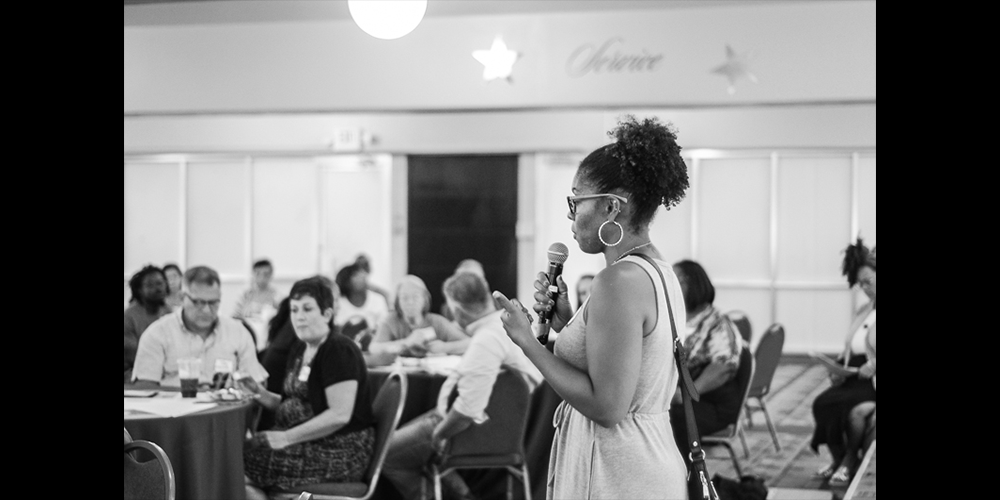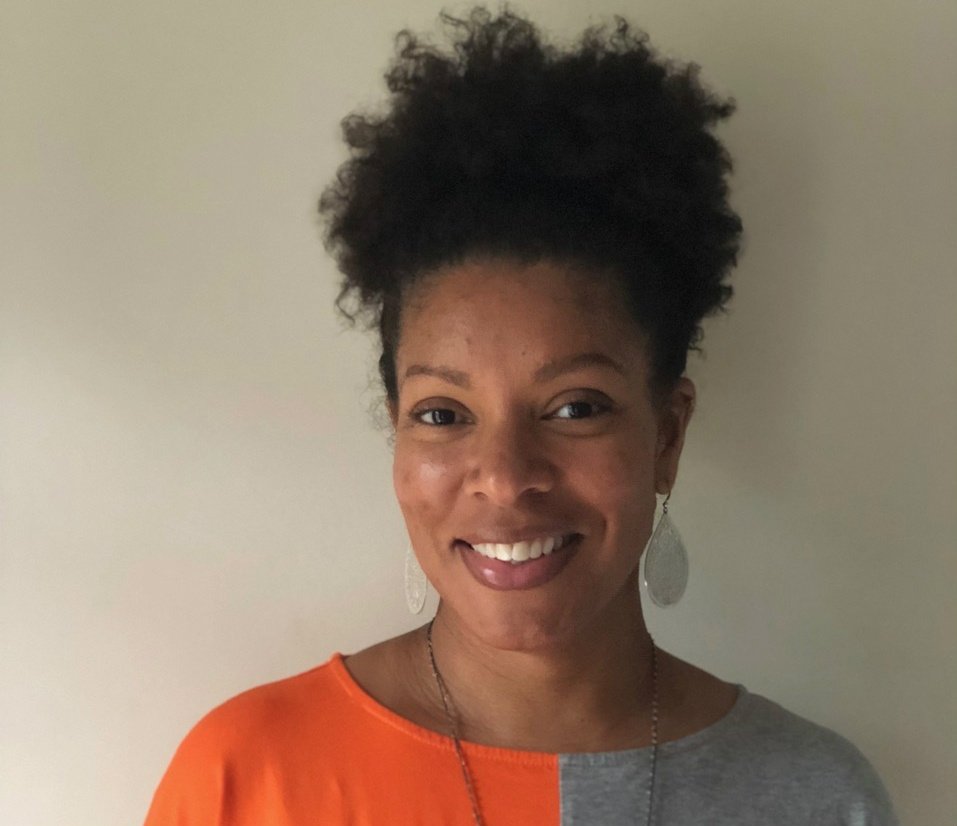Community Voices: Patrice Funderburg

Jonathan Cooper
From the start, the News Voices project has been about finding ways to include communities in the conversation about the future of local journalism.
In towns and cities across New Jersey, North Carolina and elsewhere, we’ve been privileged to meet incredible people doing important work at the local level. Those conversations have been invaluable to our understanding of how people outside of newsrooms view local journalism, how news coverage impacts their communities and work, and — most importantly — what’s working and what needs to change.
The relationships we develop and the subsequent power we build is what makes our work possible. To highlight that, we’re launching a running series where we’ll talk to our community allies about the work they do and the state of local journalism where they live.
We hope this series allows others to learn about the inspirational work we witness every day, and lifts up perspectives about local journalism from people not often heard from or sought after.
Because of her effortless ability to care, build relationships and uplift the voices of people experiencing marginalization, I knew I needed to highlight the work of Patrice Funderburg.

I met Patrice in 2016 when I was working behind the counter of a local coffee shop in Charlotte, North Carolina. She was in the early stages of facilitating what’s become an ongoing community-engagement program that uses Michelle Alexander’s book The New Jim Crow: Mass Incarceration in the Age of Colorblindness to reflect and discuss the path from slavery to mass incarceration and to examine participants’ experiences of oppression and/or privilege.
The things I remember about my first encounters with Patrice were her kind and genuine welcome: She was patient as I got backed up delivering drinks to workshop participants and encouraged me to step in and participate in the New Jim Crow series if I got the chance.
Patrice works with Educate To Engage, a firm she founded that specializes in transformational change through education, exposure and engagement. As an organizer on Free Press’ News Voices: North Carolina project, I’ve worked with Patrice by listening in on sessions of the New Jim Crow series, organizing together to combat the rise of mass incarceration, and collaborating on a few News Voices events.
How would you describe the work you do?
I would describe my work as a sort of dysfunctional marriage where corporate responsibility and cultural organizing are in therapy working toward a better marriage rooted in collective oneness.
Who’s part of that collective? Who do you work with in Charlotte?
As a woman of color-owned and North Carolina Historically Underutilized Businesses-certified business consultant, I work with people in organizations to align strategy, vision and mission with sustainable measured outcomes.
As a community activist and advocate, I support the professional development of people directly impacted by incarceration by helping them broaden their pathways to community leadership. I also lead a free six-week community-engagement series designed to build and grow transformational change in our city.
Lastly, I work with currently incarcerated women as a mentor and board member with two local nonprofit organizations.
It sounds like you’re working hard to make transformational change in many different ways. What’s been the role of local news, information and journalism in your work?
Local news justifies my work. It’s a gateway to understanding what gets prioritized as newsworthy — and what doesn’t — in our community.
Information is any additional content that can be used to influence readers or viewers to ‘believe’ what is being reported, and that strengthens my work.
Lastly, journalism is ‘how’ news is shared, which includes language, messaging and how narratives are developed and delivered across a variety of different audiences. Journalism broadens the scope of my work across multiple media channels.
And how would you describe your own experiences with local news, information and journalism?
Local news is what amplified the Educate To Engage community-engagement series to greater public awareness in July 2016. Then in 2017, both Creative Loafing and The Charlotte Observer ran stories about our work.
Access to online information allowed me to research content that strengthened my ability to create and build a growing consulting practice, and journalism has been the primary medium by which my work has gained additional exposure and momentum over the past two years.
Could you talk more about what that momentum has looked like?
My guess is that although other media has emerged in our city, The Charlotte Observer is still the most widely circulated news publication in Charlotte, and the readership demographic is still predominantly older and White. This was reflected in the overwhelming response during the summer of 2016 and it carried forward as the series grew.
However, when we moved the location of the series from just outside of Uptown near Central Piedmont Community College to deeper into West Charlotte, attendance dropped and the demographic changed, and that has been interesting to watch. I’ve seen participation shift from older, mostly White women from south of the city to a younger, more diverse group of people, including some, but not many, people directly impacted by incarceration.
On a broader level, what does local journalism do that benefits your community in Charlotte? And is there anything it gets wrong?
I think local news/media/journalism is effective at creating awareness of high-level issues that impact my community — assuming by community, you mean communities of color.
However, because our primary local news source in Charlotte skews language and messaging toward a specific demographic, the impact oftentimes hurts my community in ways that perpetuate false narratives about people outside of the readership demographic.
That piece around hurt is key. How can local journalism in Charlotte mitigate that harm? Are there any specific asks that you have?
Resist media pressure to propagandize suffering in ways that perpetuate pathologies about people of color and other marginalized communities. The way, for example, local media reported on the Uprising of September 2016 painted a picture of suffering communities in ways that hurt people who were grieving and already tired of being unseen and not heard. When journalists deliver news in ways that humanize some and dehumanize others, systems of oppression thrive.
[There’s] an opportunity for journalists to challenge societal hierarchies and paint a more realistic picture that gives people an opportunity to make more informed decisions about the world in which they live and what actions they choose to take in disrupting these hierarchies in equitable ways, or not.
So, if there were one thing you wish local news covered more or knew more about, what would it be?
The role of power in the stories being reported. Who defines it? Who has it? Who doesn’t? Who is subjugated to it? What is its impact? Etc.
And finally, how can anyone reading this support the work you’re doing?
-
Hire me as a consultant. To be honest, the Educate To Engage LLC consulting practice is a work in progress. Transformational change is fundamentally a time-consuming process, and frankly, I wasn’t focused on the ‘revenue generating’ side of the house until this year. My vision with consulting is to provide organizational development, project management, and training and facilitation services to companies and organizations, while providing individual coaching to people in organizations.
-
Help mobilize resources to support our work.
-
Support the campaign to #RenameKeithFamilyYMCA. (The Keith Family are notorious prison profiteers who have a Charlotte YMCA named after them.)
For more information about Patrice, feel free to email her at info@edu2engage.org.